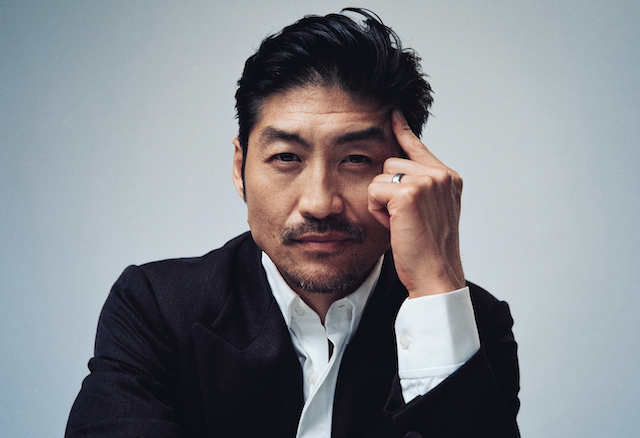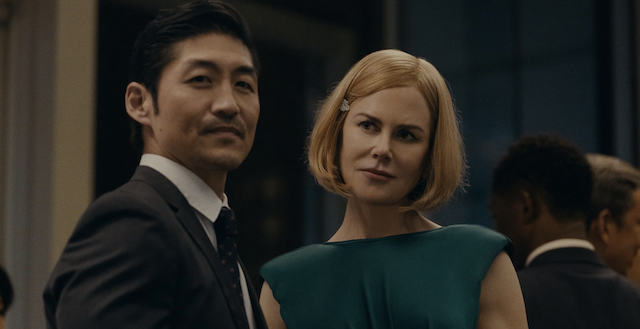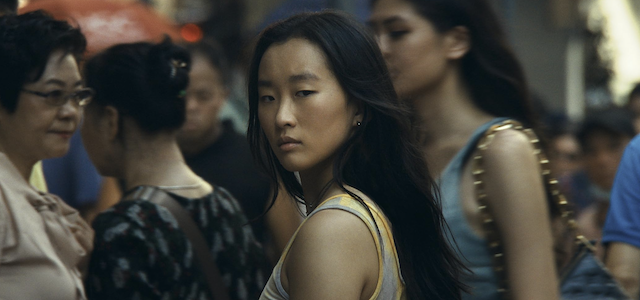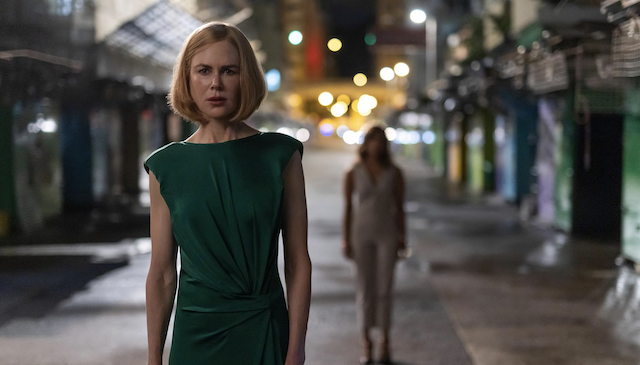
©Courtesy of IMDB
Original Language : English

Photo by Courtesy of Prime Video – © Amazon MGM Studios
Exclusive Interview with Actor Brian Tee
Q: Your father was born in an internment camp during World War II. Did he talk about his experience back then?
Brian Tee: No, It was something that he never talked about. I actually didn’t know, maybe until I was in my late teens, that he was actually born in an internment camp. I studied everything about that. I really really dived into that experience in college, understanding the Japanese American internment and what happened to them as far as what my family or my father’s side of the family had gone through.
Q: You were born in Okinawa, Japan, initially. You are actually Japanese and Korean. What was it like growing up in your household? Did you learn Japanese and Korean at home?
Brian Tee: My father was very Japanese. He was born in the United States, grew up eating hot dogs, hamburgers and apple pie and was very Angeleno. He spoke Spanish as well, grew up on the eastside of Los Angeles and went to Lincoln High School. He did everything very American. In the house, English was the language for him and I thought he spoke Japanese.
My mom was from Seoul, Korea, but she moved to Okinawa and learned Japanese. The Japanese language was very strong, but my mom’s side of the family there’s a strong Korean woman side. Whenever she would speak to me, it would be in Korean. Oddly, I can understand more Korean with my vocabulary, but I could speak more Japanese.
Q: Wow. That’s interesting.
Brian Tee: Very interesting. That’s probably because of the way I grew up. When they were talking, they were speaking together in Japanese. That’s what I heard and interacted with. But then, when my mom would tell me what to do, it would always be in Korean. It had a huge influence on my growing up. I was raised by three women, my mom, aunt and grandmother. That’s all on my mother’s side, the Korean side. I think they were telling me what to do and how to be — it was all in Korean, so I seem to understand more, but vocally speaking, I speak more Japanese than I do Korean.

Photo by Jupiter Wong – © Amazon Content Services LLC
Q: Let’s get to this series — Expats. What’s great about this show is that it shows a different perspective on parenting. Your character, Clark, and Margaret — played by a wonderful Nicole Kidman —have lost a child. Another character, Hillary(Played by Sarayu Blue, thinks about having a baby with David(Jack Huston), but she’s afraid that having one could create chaos in her life. Talk about these different perspectives on parenting.
Brian Tee: What’s wonderful about the show is that it comes from all different kinds of perspectives. I think there’s always something you can relate to that is somewhat universal to anyone watching the series. I think that’s why people are attracted to it as far as parenting is concerned. I feel that parenting isn’t for everybody. People walk different paths and as parents, parent in different ways.
The Margaret and Clark characters, we both lost a child but we’re both coming at it from different perspectives and different emotions. They have completely different feelings as far as the way in which they want to try to go about it and handle it. I feel like I’m very much wanting to try and keep the family together because we have two other children.
I also have this set of responsibilities that I need to do and take care of. I think we all grieve differently, we all deal with trauma differently. No matter who you are — if you are or not a parent — I think everyone grieves in different ways. I think that’s what makes us unique.
Q: Even though Clark and Margaret have lost their kid, they still have two kids to raise. What kind of preparation did you do with Nicole Kidman to demonstrate this kind of discord, while at the same time you have to bond together to raise two other kids. Talk about the conversations you had with Nicole?
Brian Tee: Nicole and I really found ourselves as far as artists and as characters — we really trusted one another. I think that was very clear. Even personally, we understood that we’re both in happy families and marriages where we can actually give ourselves over and maintain a particular sense of trust, honesty and commitment towards one another. I think that was the anchor of our relationship both on and off camera.
In building our characters, I feel we really tried to hone in on the idea that these two people love each other no matter what. There wasn’t this sense of breakup or separation. They’re together through it all no matter which direction one of us goes; we have each other’s back in that sense and we’re just trying to hold everything together.
I think that was what was true to the series in that these two individuals, though they’re taking on these certain circumstances from different parts of their lives and different sources and different perspectives, they will always be together. I think that is the center of this relationship.
Q: Even though you play one of the key characters on this show, this series feels that it’s a very female oriented show with Nicole Kidman, Sarayu Blue and director Lulu Wang. Talk about what it was like on set to work with those very strong women.
Brian Tee: It was amazing. It was wonderful. I feel that there was this sense of camaraderie and togetherness, especially because it was a very female-led and driven cast and crew. Obviously with Lulu being the showrunner, director and writer, the whole writer’s room was completely female as well. Hair and makeup, set design, also.
Everyone had their opinions, but yet there was this deep sense of understanding that this is the show they wanted to create. It was a beautiful collaboration and I was only there to help support and fulfill the story that they wanted to tell. it was a beautiful experience.
I feel like there was this sense of intention in everything that they did, but I don’t feel that they neglected the male counterparts. It was a very communal situation. It just was led by a completely all female cast and crew. It was a beautiful thing.

Photo by Courtesy of Prime – © Amazon Content Services LLC
Q: What’s engaging about this character Margaret is that she had a career as a landscape artist which she set aside for raising the children. But after the incident of losing a kid, she had another small apartment by herself coping with the loss of the child. Talk about the layers of characteristics to Margaret?
Brian Tee: As far as our characters are concerned, Margaret takes her own path, as does Clark. Margaret needs to find this sense of solace, of quiet, of peace. To do so, she chooses to get her own apartment. Clark wants to try to continue on, wants to try to hold things together, but still needs to find a sense of hope for himself. He actually dabbles into turning towards religion. I think these two characters are doing this secretly.
Clark doesn’t know she has an apartment. She doesn’t know that Clark is going towards religion. I feel like everyone deals with this particular tragedy [in their own way] and it feels like they need to find themselves in a certain sense.
When you’re grieving you go through a particular process that each one has to experience for themselves — whatever path they’re taking is their own true path. Sometimes it’s not necessarily that the path your partner wants you to take, is the one you have to go through in order to find yourself.
Even though we’re going in two different directions, there was this deep sense of love and understanding that we will always be together. Through all of this, we are continuing to try to find ourselves and move forward.
Q: Speaking of dealing with grief, Clark deals with grief in a very muscular manner, trying to comfort his wife and taking care of the children, even though he’s busy with work — it’s really different from Margaret. What conversations did you have with Director Lulu Wang to create the dynamic of your character Clark dealing with grief.
Brian Tee: We talked about the five stages of grief and what I loved about the writing was that it allowed you to hit all of them and more like five, six, seven, eight, if you had them. Each episode fulfilled a target perspective as far as which stage of grief that you’re in. There were certain episodes and certain scenes that had you almost hit all of them . It was a beautiful, wonderful thing to be able to be a part of that. I didn’t feel as far as an artist is concerned, that you should come in with a particular set of anything that you want or need to do. There’s definitely certain story points that you should absolutely hit and, in dealing with Lulu, there was this freedom.
I think we all experienced it in different ways. It’s not until episode 5, that you see that he’s a completely different human being. He’s a broken man. In that sense, it was a beautiful thing to experience for myself as far as an artist is concerned because you get to complete the arc this character is going through. From episode 1 to episode 6, he’s a different human being. This beautiful arc is a testament to Lulu.
It’s a testament to the writer’s room and what they created as far as how a father, a male figure, would deal with something like this as far as grief is concerned in this particular tragedy. What I love most about it and I appreciate most is that it wasn’t cliche. You felt what Clark was going through in a true and real way. It wasn’t this trope of any kind to try to be masculine in any sense. You saw what he was feeling.
He was trying to hold it together, there were times where he absolutely couldn’t. He wasn’t doing it in any kind of tough guy way. He was just doing it in a fatherly way. We really tried to hone the character of Clark.
Q: Speaking of grief, did you talk to grief counselors or people who lost a loved one to understand what they went through?
Brian Tee: I didn’t. But I’m not sure if the other characters did. Maybe the writers and creatives did. I really honed in on my life experiences, me as a father. The idea of losing my daughter is probably the worst thing I can even imagine or think of. I had a well of things to pull from to be able to go there.
As an artist, there is the utter commitment to do so. You can’t judge yourself. You got to dive into the pool and drown and swim at the same time. For this type of story, you must really, truly go there. Nicole has talked about this before, because you’re a vessel for this story. you have to commit to being that particular vessel. You can’t be afraid. You have to be a little bit scared to be brave. That’s why a lot of actors are very brave because it’s scary. To put yourself in that situation, you have to do it. You have to commit yourself in order to tell that story through your character.

Photo by Jupiter Wong – © Amazon Content Services LLC
Q: You worked with the TV show ”Chicago Med” and films like “The Fast and Furious” and “Jurassic World.“ What has changed in the last 10 years for the Asian community in the film and TV industry?
Brian Tee: Well, definitely there’s more awareness. That’s for sure. I think in the last 10 years, there’s been this wonderful growth, I feel as far as the community is concerned. More people are aware, talking about it and building a community on ourselves to push things forward to really tell our particular stories.
It is going to be a slow process, but no question, from when I started 25 years ago that the opportunities are more and the stories have much more depth as far as being Asian American Is concerned. I also think that the industry and internationally has helped a lot to really open certain doors and gateways to tell our stories.
We’ve also proven ourselves. We’ve also proven ourselves as writers, as directors, as actors, you know, production all the way across the board that we have the ability and the skills to do so. What we do is art, but it’s combined with business. We’ve also proven it on that factor as well. I feel like we’ve
As far as a full Asian, or Asian American community goes, we’ve proven ourselves to be a particular commodity for us to tell wonderfully great stories. I just feel like the opportunities are still a bit stilted because there is this muscle memory, right, of, of doing what worked all the time. that is hard to break.
That is completely hard to break. But I feel like for us, if we continue to work and grow, that the muscle will develop and start to change as far as the industry is concerned. Hopefully, it gets better for all of us. We all get to continue on and tell great stories as a community. That’s definitely a slow process, but we have to be a part of that process and be a part of that effort for growth and change.
Q: Is there any chance that you will direct a film in the future?
Brian Tee: I’d love to. I feel like it’s a piece of me that I’d love to pursue later on. I think acting is my passion. It’s my belief, my religion in a sense. I feel directing is just a different phase of that going into different creative perspectives. I can definitely grow and learn from wanting to tell a particular story.
If we’re talking about being Asian or Asian American and telling a story from your perspective, you have much more of an influence to do so in the director’s chair. As an actor, you’re telling someone else’s story. You can put in your perspectives or your life’s journey but it’s someone else’s story. If you want to tell your own story, then you have to direct it. I would love to do that someday.
If you like the article, share your thoughts below!
Here’s the trailer of the film.

